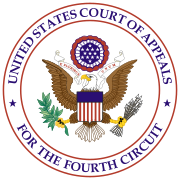This article includes a list of general references, but it lacks sufficient corresponding inline citations. (January 2022) |
| Harvey v. Horan | |
|---|---|
 | |
| Court | United States Court of Appeals for the Fourth Circuit |
| Full case name | James Harvey v. Robert F. Horan, Jr., Commonwealth's Attorney, County of Fairfax |
| Argued | September 26, 2001 |
| Decided | January 23, 2002 |
| Citation | 278 F. 3d 370 (4th Cir. 2002) |
| Case history | |
| Prior history | 119 F.Supp.2d 581 (E.D. Va. 2000) |
| Subsequent history | Rehearing en banc denied, 285 F.3d 298 (4th Cir. 2002) |
| Court membership | |
| Judges sitting | J. Harvie Wilkinson III, Paul V. Niemeyer, Robert Bruce King |
| Case opinions | |
| Majority | Wilkinson, joined by Niemeyer |
| Concurrence | King |
| Laws applied | |
| 42 U.S.C. § 1983 | |
Harvey v. Horan, 278 F. 3d 370 (4th Cir. 2002), is a federal court case dealing with felons' rights of access to DNA testing. The Eastern Virginia District Court originally found that felons were entitled access to DNA testing on potentially exculpatory evidence, but this finding was later overturned by the Fourth Circuit Court of Appeals. Nevertheless, the case paved the way for the Innocence Protection Act, which ensures that convicted offenders can try to prove their innocence by requesting DNA testing on evidence in government's possession that was used in their case.